Description
- These IG42-DB4 ATR Heavy Duty Platform are designed and fabricated in North Carolina USA and fully supported by SuperDroid Robots.
- The chassis is a rigid gusseted aluminum frame that is precisely fabricated using state of the art CNC equipment.
- The wheels are mounted on solid steel axles which are supported by two sealed ball bearings.
- Each axle/wheel is driven by a planetary gear motor through a chain and sprocket drive, delivering smooth reliable power.
- The robot uses differential steering (movement is based on two separately driven wheels placed on either side of the robot body.
- IG42-DB4 ATR Heavy Duty Platform It can thus change its direction by varying the relative rate of rotation of its wheels).
- While we recommend the standard configuration.
- The TP-170-042 kit allows for a wide range of customizations based on your needs.
- We offer a variety of motor controllers, batteries, RC controllers, and encoders so you can configure the robot to meet your requirements.
- The weight of the robot will vary depending on how the robot is configured (batteries are the main cause of this).
Wheels:
- Choose from our selection of wheels.
- You can choose from our standard grip pneumatic tires or if more traction is required you can choose our rugged all terrain traction lug tires.
- IG42-DB4 ATR Heavy Duty Platform Gear Motors: Choose from our selection of different RPM gear motors.
- As you go down in RPM, your payload capacity will go up but your speed will go down.
- As you go up in RPM, your payload capacity will go down but your speed will go up.
Batteries:
- We offer a few different battery options but there are two types of batteries that we recommend using with this kit:
- Lead Acid and LiFePO4. The lead acid batteries are much less expensive but are heavier,
- Do not provide any internal circuit protection, and can survive anywhere from about 200-1000 charge cycles.
- IG42-DB4 ATR Heavy Duty Platform The LiFePO4 batteries are more expensive but are much lighter, have internal circuit breakers
- prevent damaging themselves, and can survive about 1000-3000 charge cycles.
- The charge cycle estimates are based on the recommended depth of discharge for each battery cycle.
- A lead acid battery is only recommended to be discharged to about 50% of it’s capacity
- LiFePO4 battery can be discharged to 100% with no long term affects.


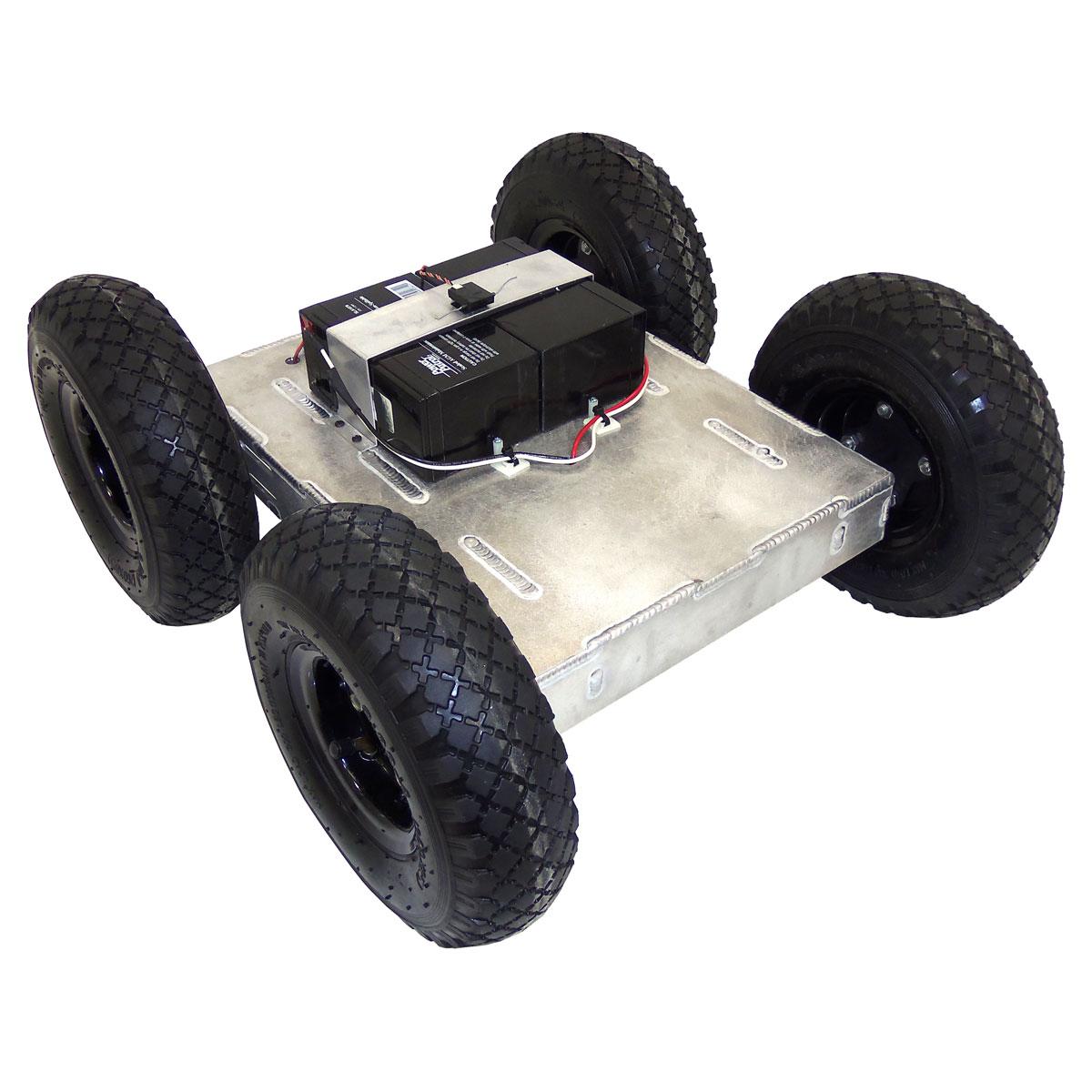
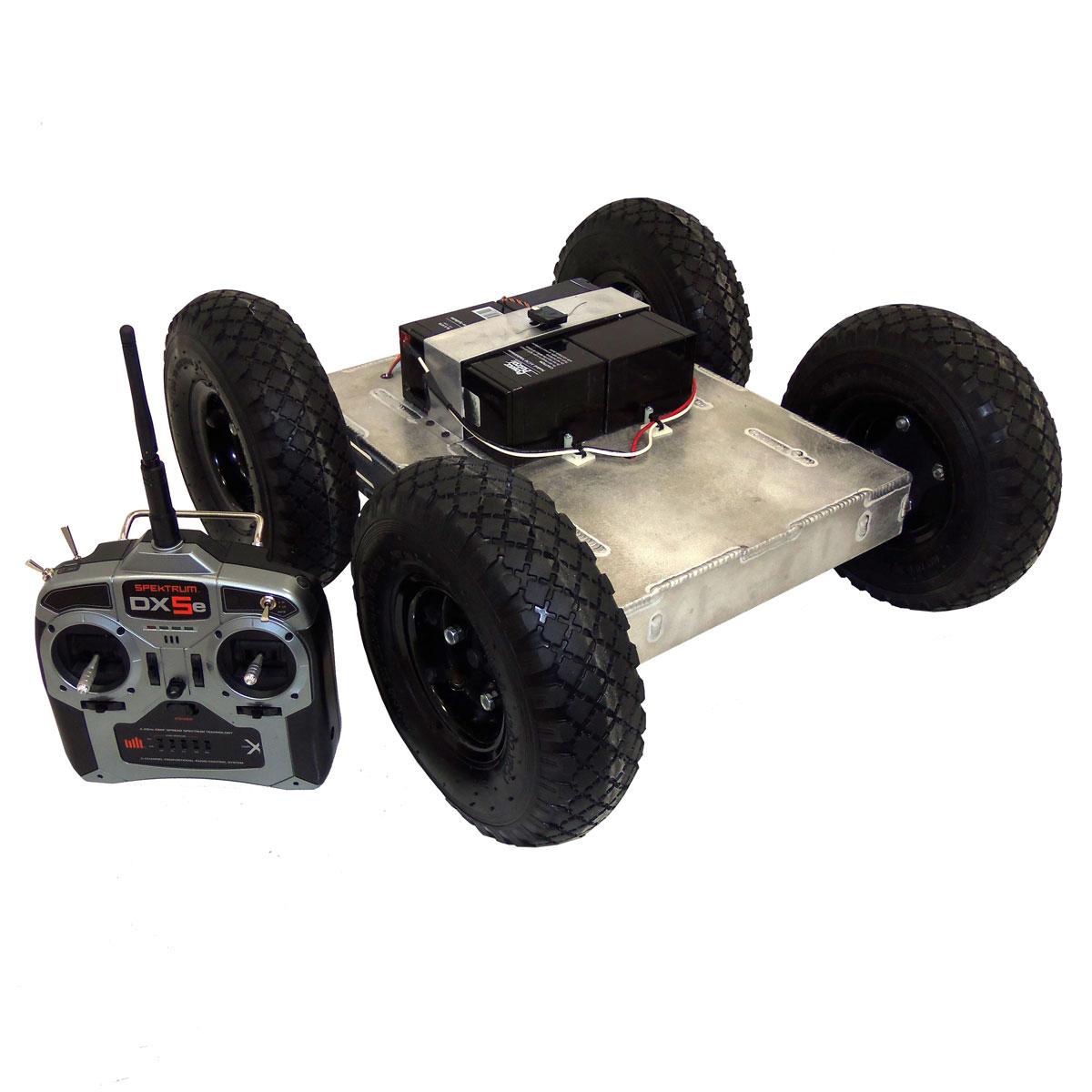
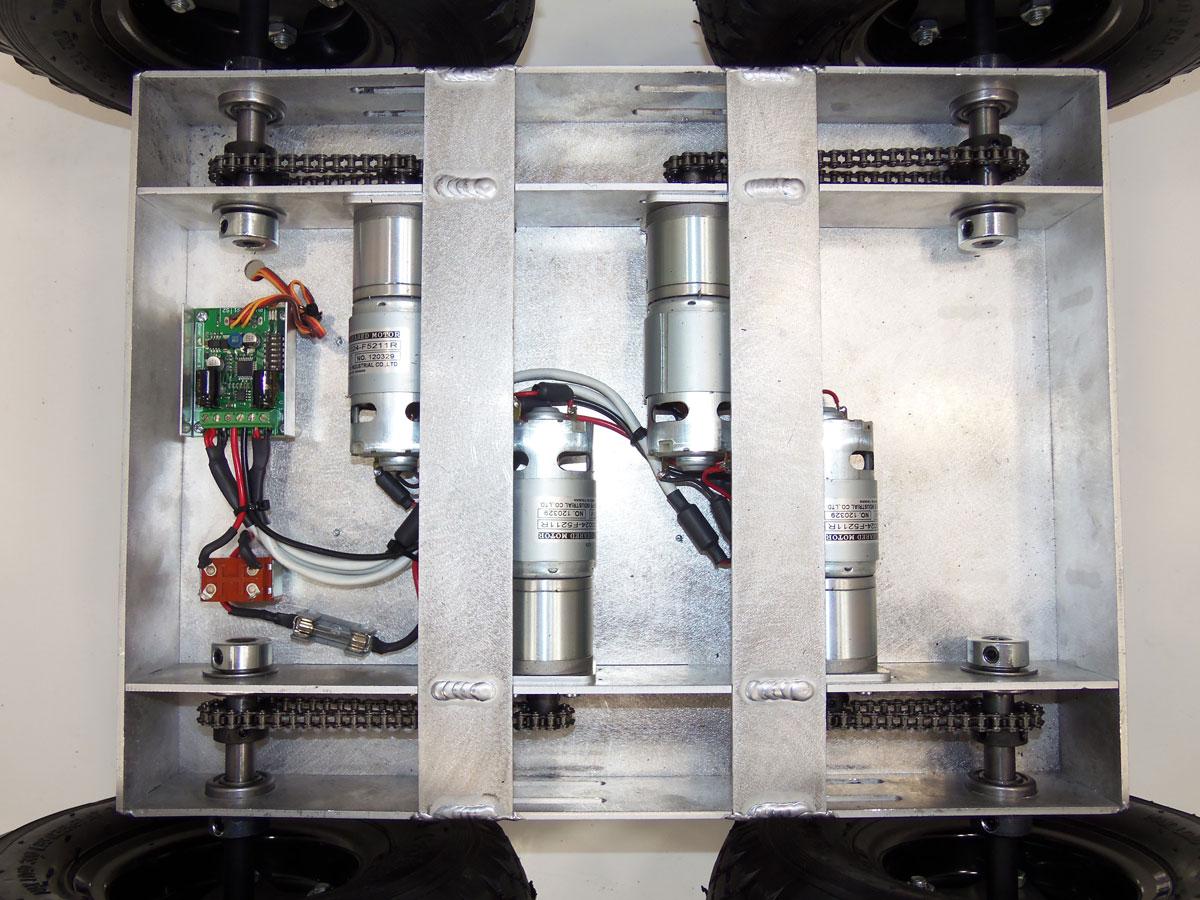
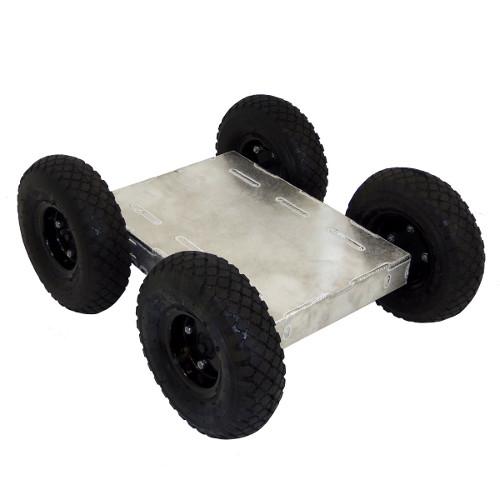
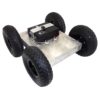
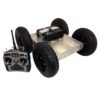
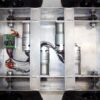
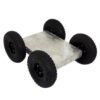
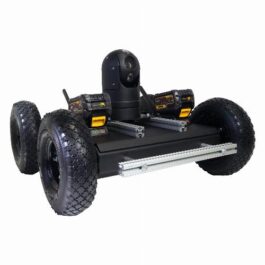
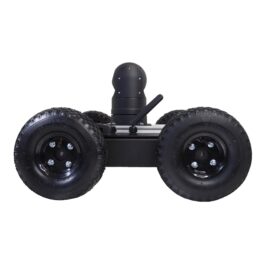
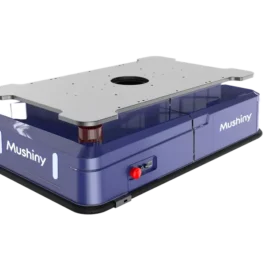
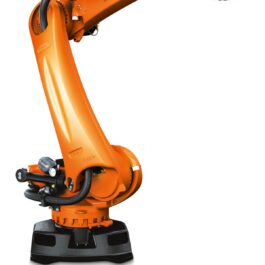

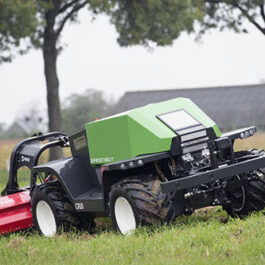

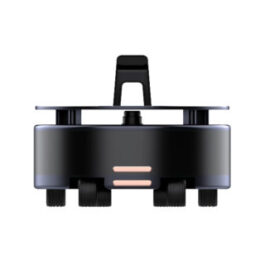
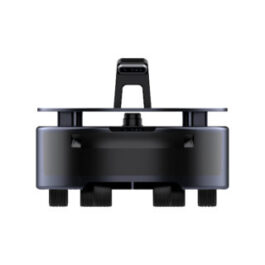
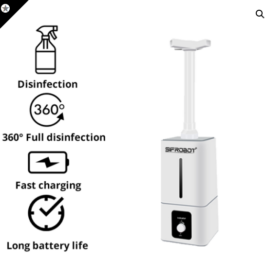

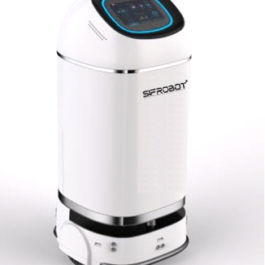
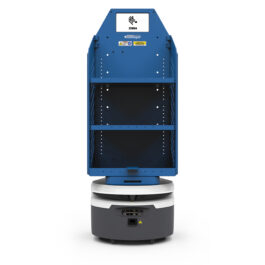
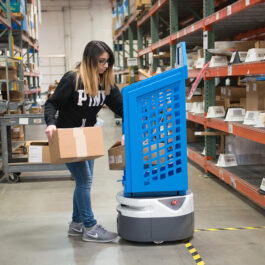
Reviews
There are no reviews yet.